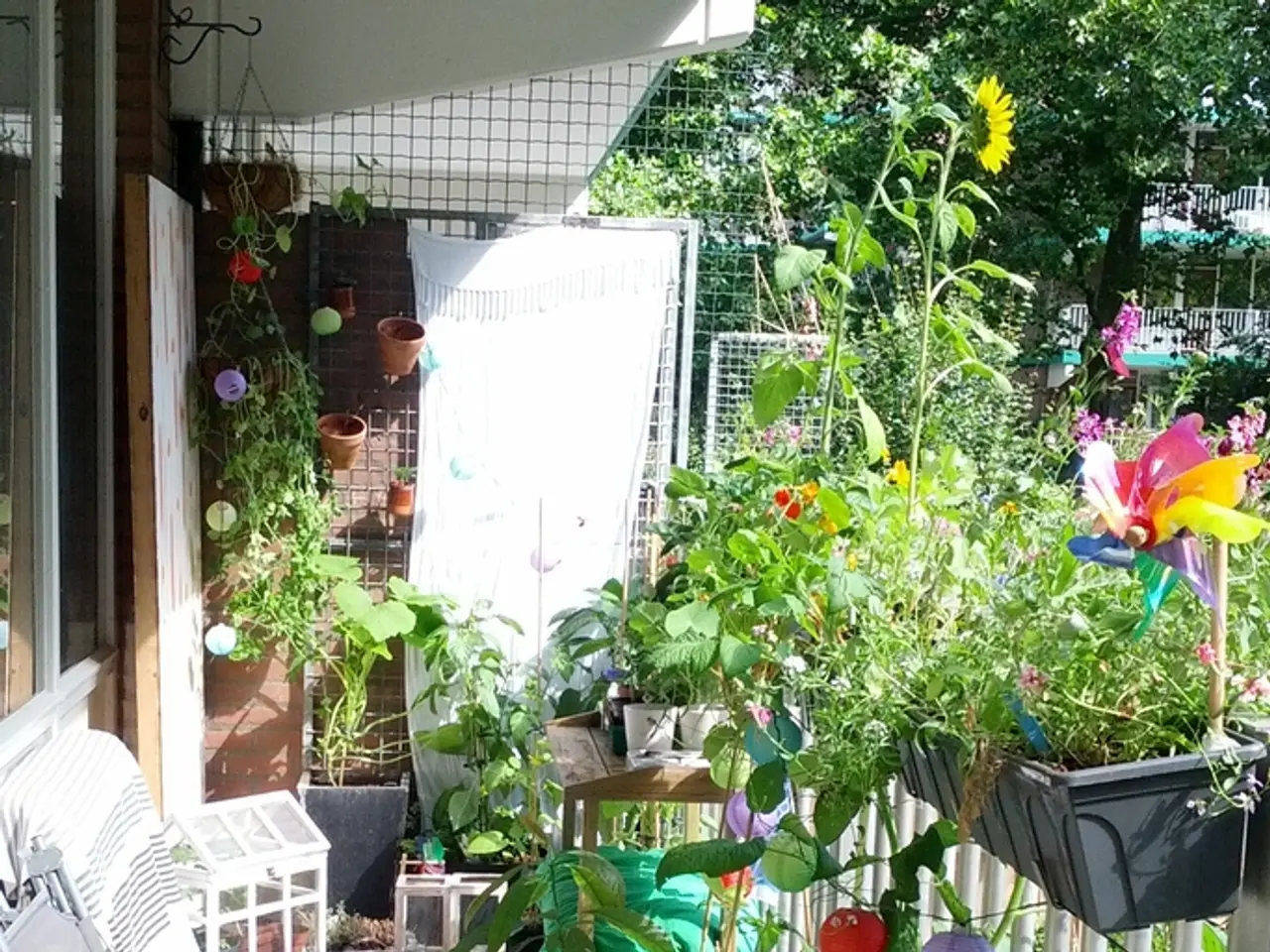Transforming Home into an Eco-Conscious Abode: Achieve Green Standards on a Budget
In the pursuit of a sustainable future, homeowners are increasingly turning to eco-friendly renovations that not only reduce their carbon footprint but also offer long-term savings. Here's a practical guide to implementing cost-effective, environmentally responsible home improvements.
**Small Changes**
Simple lifestyle adjustments can make a significant difference. Use biodegradable and compostable cleaning products, grow fresh herbs at home, and repurpose old clothes as cleaning rags to reduce plastic waste, carbon footprint, and the need for disposable items. Implement kitchen and garden composting to recycle organic waste into nutrient-rich soil for your garden.
**Reusing Materials**
During renovations, salvage and reuse doors, cabinets, and fixtures to avoid buying new items and reduce material waste. Upcycle items like old furniture or shipping containers to create unique, eco-friendly home features or even entire homes, such as shipping container homes.
**Sustainable Materials**
Opt for natural, durable, and recycled materials in construction, such as bamboo flooring, recycled steel, or reclaimed wood. Use eco-friendly paints like low-VOC latex to reduce harmful chemical emissions indoors. Consider advanced sustainable home types like Earthships, which use recycled tires and bottles and incorporate water and energy self-sufficiency.
**Energy Efficiency Upgrades**
Install energy-efficient windows (double or triple pane with sustainable frames like fiberglass) to cut heat loss and reduce heating/cooling costs. Improve insulation and air sealing to prevent energy waste; these upgrades have a high impact yet low cost relative to extensive renovations. Use smart water management devices such as low-flow faucets, efficient showerheads, and rainwater harvesting to reduce water consumption.
**Renewable Energy**
Add solar panels or small wind turbines to generate clean energy onsite, potentially lowering electricity bills and carbon emissions. Incorporate battery storage solutions to store excess renewable energy for use during peak times.
**Waste Reduction Strategies**
Carefully plan materials to minimise over-ordering and construction waste; use modular designs that optimise material use. Opt for washable, durable home textiles like machine-washable rugs to reduce replacement frequency and waste. Donate or thrift home decor items to avoid new product consumption and landfill waste.
This approach enables affordable and environmentally responsible renovations that improve your home's sustainability while potentially saving money over time. Look for financing options, tax credits, or incentives to lower the initial investment in renewable energy systems. Add a programmable thermostat to optimise heating and cooling usage. Deconstruct instead of demolishing during remodelling to salvage usable materials. Consider solar water heaters to reduce energy consumption. Consider metal roofing for its long lifespan and energy efficiency. Recycle demolition waste whenever possible to avoid disposal fees. Some eco-friendly renovations may require an initial investment but offer long-term savings. Green renovations benefit both the wallet and the environment. Install solar panels for significant long-term energy savings. Donate unused items from remodelling to donation centres or resell them online.
In the realm of personal finance, investing in sustainable home improvements can lead to long-term savings and contribute to a greener lifestyle. For instance, adopting waste reduction strategies during renovations, such as minimizing over-ordering and recycling demolition waste, can lower disposal fees and potentially increase wallet-friendly returns. Additionally, opting for durable, sustainable materials like recycled wood or bamboo flooring not only promotes a home-and-garden lifestyle of eco-friendliness but may also offer long-term cost benefits due to their longevity.






